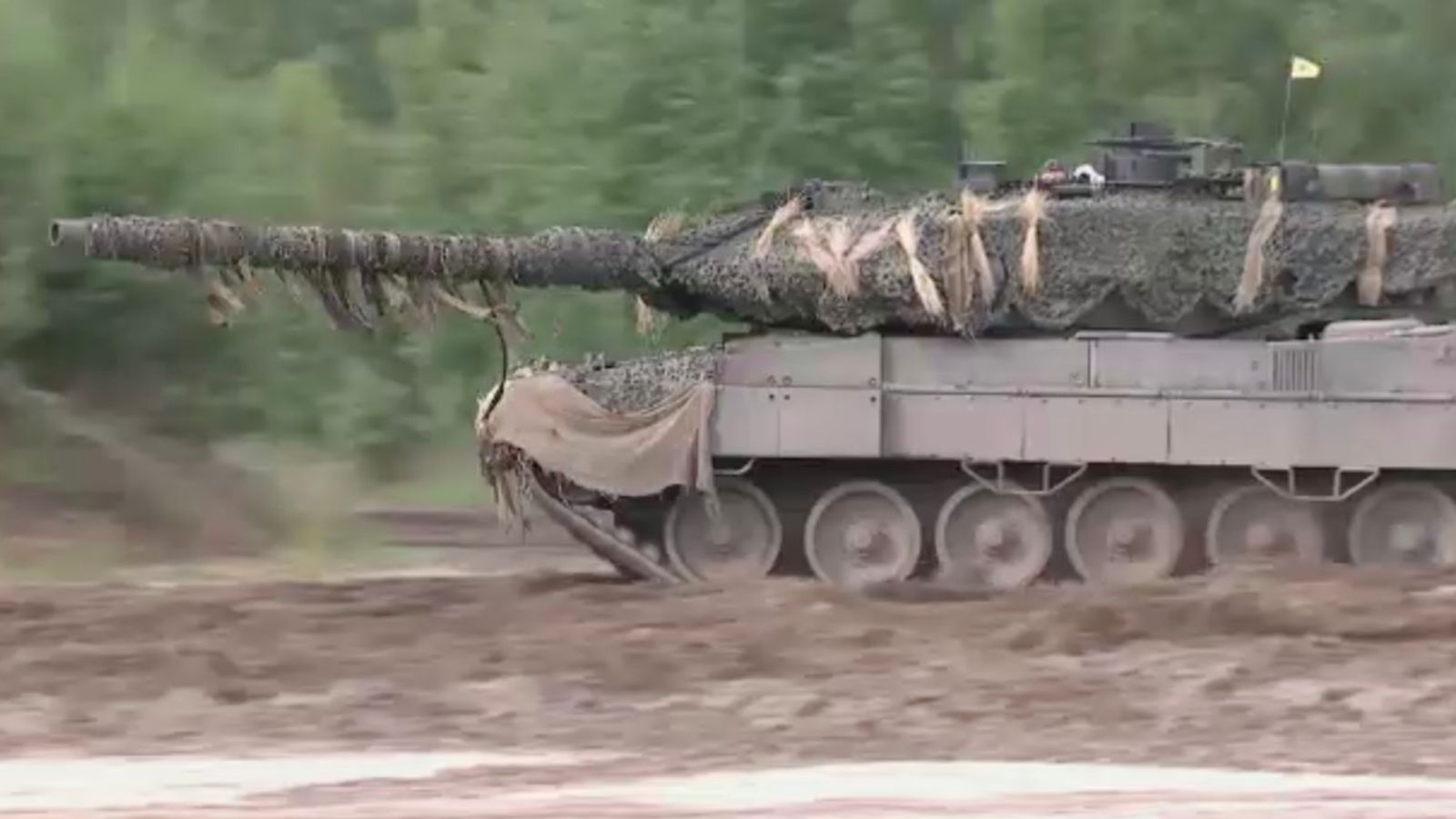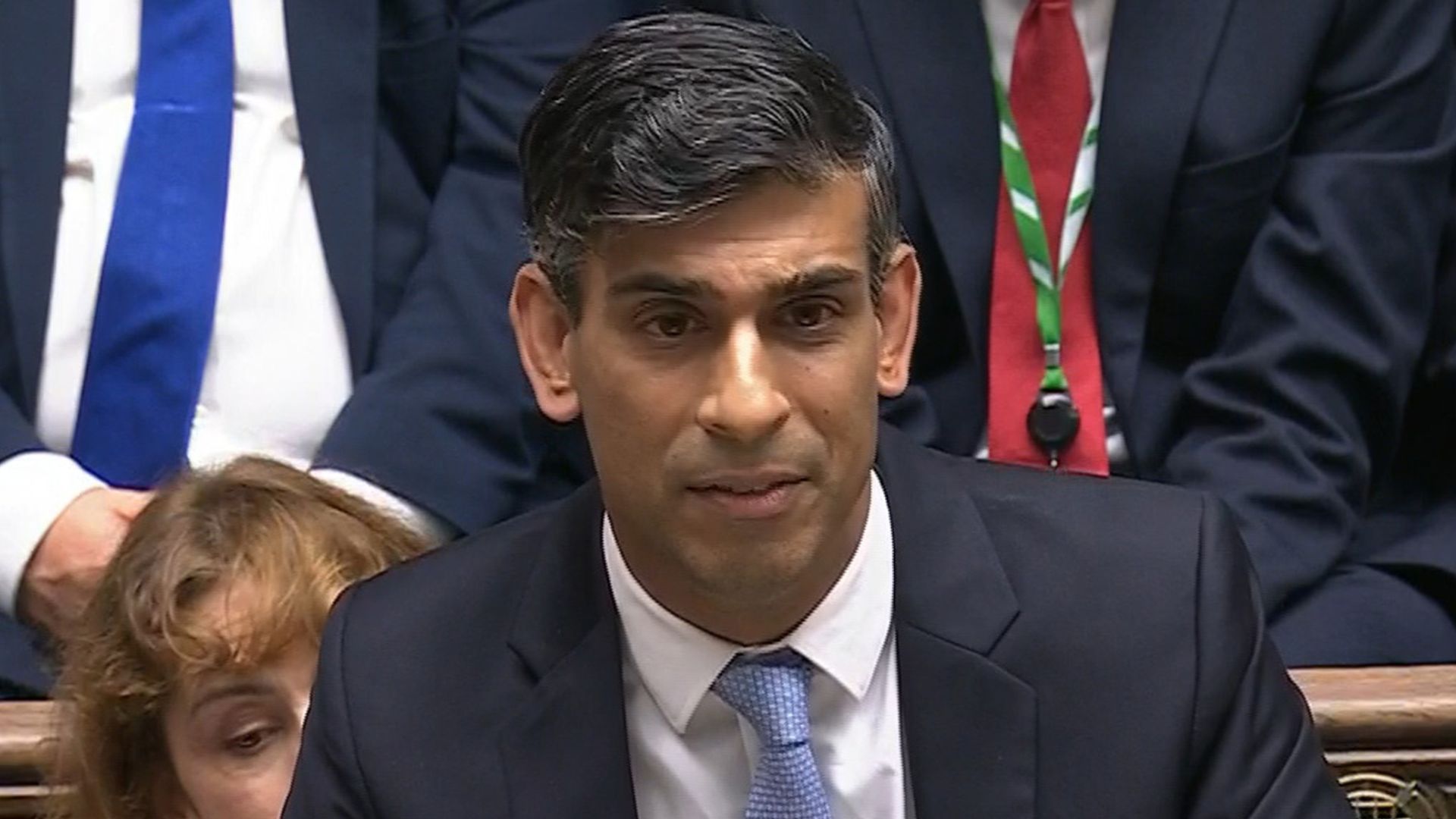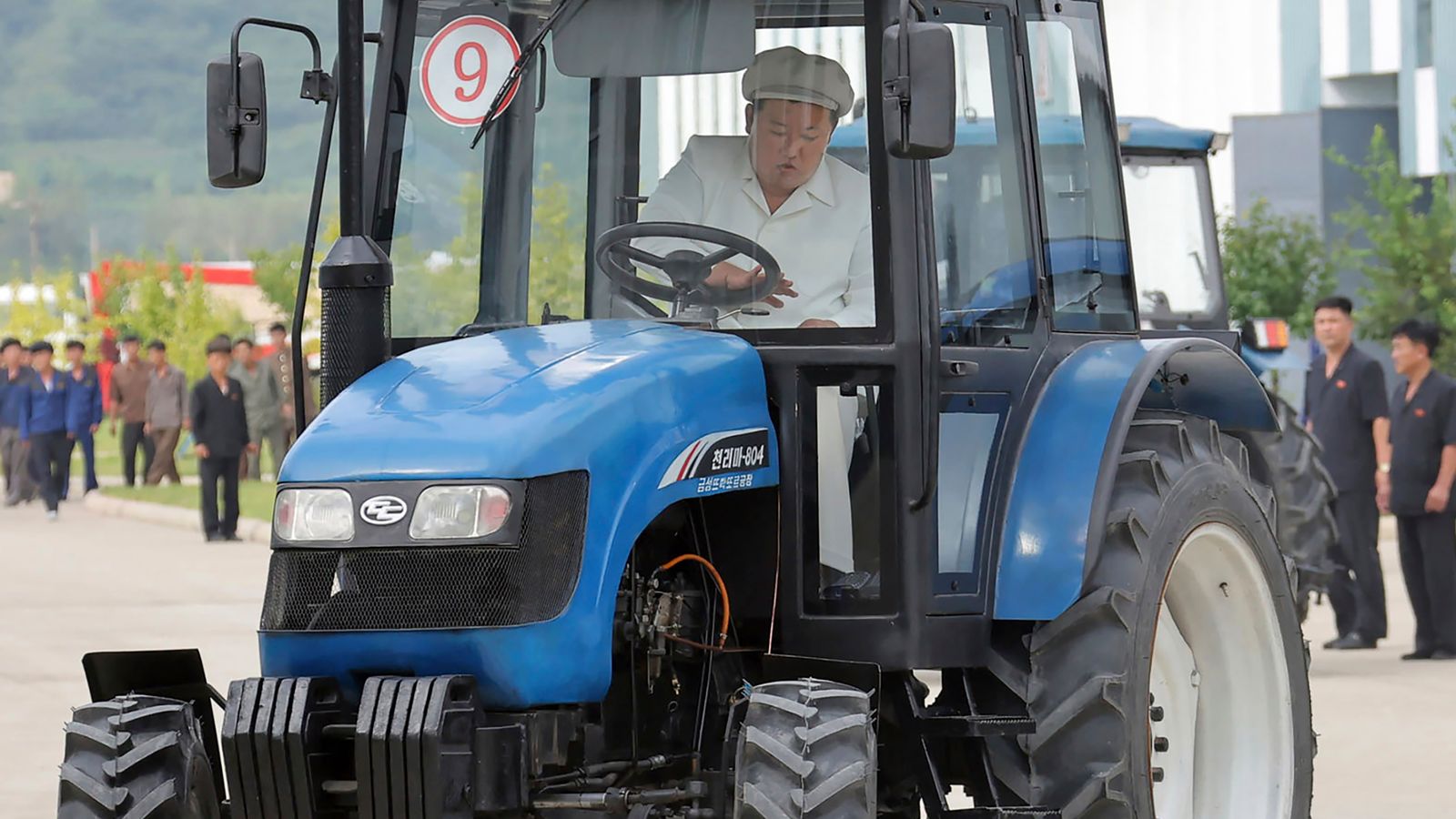In a quiet suburb on the edge of Hamburg, we get a glimpse into a small part of Germany’s war machine.
Vincorion’s plant makes parts for weapons including the in-demand Leopard 2 tank.
We watch as one member of staff peers through magnifying lenses as they carry out delicate electrical work.
On the other side of the room, a gearbox is hoisted into the air before going for testing.
If you’ve ordered a Puma or Leopard 2 tank, chances are this factory will have worked on part of it.
But while President Vladimir Putin has said he’s scaling up his arms production, here they warn Germany hasn’t been doing the same.
“For me, it is worrying that Germany is donating 14 Leopard 2 tanks to Ukraine and has not ordered a single one,” says Dr Stefan Stenzel, the chief executive of Vincorion.
Germany is one of the biggest military donors to Ukraine.
As well as pledging to send the Leopards, it has also lifted restrictions on allies so they can do the same.
At the Munich Security Conference, the German chancellor urged partners to send their tanks “now” and declared “we are putting an end to the neglect of the Bundeswehr [German armed forces].”
Last year, in an historic turning point, Germany announced a €100bn (£88bn) special fund to boost its own military.
But 12 months after the war in Ukraine began, critics say little of that cash has been effectively spent and the already depleted armed forces are in an even worse position.
Read more:
Will German tanks be enough to deter Vladimir Putin?
Vladimir Putin issues rallying cry ahead of invasion anniversary
Russia’s Wagner Group boss releases image of dead soldiers
“We are bleeding out,” says Dr Stenzel, “With all our donations to the Ukrainian army and with no reordering so far the German army is getting weaker on a daily level.”
Even if Germany began ordering Leopard 2 tanks today, Dr Stenzel says it could take up to 24 months for them to be delivered.
Bluntly, he explains it means that holes are being left in Germany’s own weapon stocks which due to the global demand can’t be quickly filled.
“How serious is this?” I ask.
“Very serious,” he replies. “As long as the conflict stays in the Ukraine, there is time, but who can control it?”
Click to subscribe to the Sky News Daily wherever you get your podcasts
Since the end of the Cold War, the German military has been traditionally underfunded. Hours after Russia invaded Ukraine, the army chief described the Bundeswehr as “more or less empty handed”.
The defence minister Boris Pistorius has promised to keep supporting Ukraine, boost investment in the armed forces and wants more cash for arms.
But a painfully slow and bureaucratic procurement system leaves critics pointing to a lack of urgency.
A spokesperson for the German Ministry of Defence denied the country was undermining its ability to defend itself if the war in Ukraine spread.
“Germany’s defence is deeply embedded in [as well as contributing to] the transatlantic collective defence structures of NATO. Therefore, I cannot see that Germany needs to defend ‘itself’, collective defence matters,” they said.
The problem is that the ongoing conflict is draining allies’ supplies as well, with ammunition especially under strain.
“I think this is a real problem and the German Ministry of Defence is plainly wrong on this, because, yes, Germany is in NATO, but in a way, Germany is NATO,” said Dr Barbara Kunz, senior researcher for the Institute for Peace Research and Security Policy at the University of Hamburg.
Be the first to get Breaking News
Install the Sky News app for free
“NATO’s armed forces or NATO’s military strength is the strength of its member states. And so, if member states do not have the military forces required, NATO is weak.”
According to Dr Stenzel, there is only one solution: “Orders, orders, orders.”






